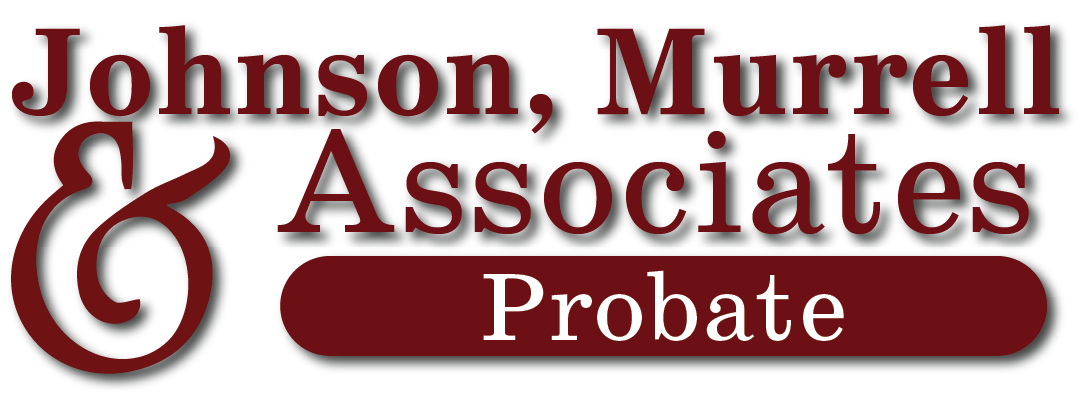Probate is a legal process that settles the estate of a deceased person and distributes their assets to beneficiaries. But do you need a lawyer for probate in Tennessee? Navigating the probate process can be complex and time-consuming. For that reason and more, hiring a lawyer can provide valuable assistance and guidance throughout the various stages of probate.
Probate lawyers are essential to probate due to the intricate nature of the process. They help with every step, from filing a petition in the decedent’s county of residence to resolving disputes in contested cases. Along the way, they address debts and taxes, facilitate the transfer of assets, and manage any complications that may arise.
Why You Need a Probate Lawyer in Tennessee
The probate process in Tennessee involves the following steps:
- Filing the Petition
- Appointing the Executor or Administrator
- Paying Debts and Taxes
- Distributing Assets
1. Filing the Petition
The first step is to file a petition with the probate court to initiate the legal process. This must be done in the county where the decedent lived. If the deceased person had more than one residence, file in the county where they spent most of their time, usually the same address that’s listed on their driver’s license or tax documents.
Filing a petition involves submitting the necessary documents, including:
- an application to become the estate executor
- the deceased person’s will, if available
- a death certificate
Johnson & Murrell’s probate attorneys specialize in preparing and filing necessary documents, petitions, and court forms, streamlining the process and saving you time. With an understanding of Tennessee’s specific requirements and deadlines, we minimize the risk of errors or omissions, helping to prevent delays or legal complications.
2. Appointing Executor or Administrator
The deceased will have appointed an executor in their will. If no will is present and an executor wasn’t named, then the court will appoint an administrator.
Although they have different titles, these roles have the same essential functions and duties. In either case, this individual will be responsible for managing the estate and carrying out the probate process.
Executors and administrators are responsible for carrying out probate correctly. If the estate is smaller with no conflict between heirs and beneficiaries, it may be a straightforward probate case. However, conflicts can arise between heirs and beneficiaries regarding the distribution of assets or the interpretation of the will.
Resolving these disputes can be time-consuming and emotionally draining. In case of conflicts or disputes among beneficiaries, a probate lawyer can provide effective dispute resolution strategies. This minimizes the need for costly litigation that can last from six months to a year.
3. Managing Accounts and Other Assets
Probate lawyers play a crucial role in facilitating the efficient transfer of assets after a person’s death. They assist in navigating legal processes, such as:
- Transferring bank accounts
- Changing names on deeds
- Locating life insurance policies
Certain assets, like bank accounts or cars, may bypass probate, simplifying the transfer process. Attorneys can guide individuals on the most effective ways to manage heirlooms and other items, ensuring a smooth transition per the deceased’s wishes. Their expertise helps streamline the probate process, minimizing delays and potential conflicts among heirs.
By providing legal counsel, probate lawyers help individuals access and distribute assets in a timely and legally compliant manner. In this way, they offer invaluable support during a challenging time.
4. Paying Debts and Taxes
Before the estate and assets can be passed to the beneficiaries, any outstanding debts and taxes must be paid off. The executor is not personally reliable for the debts of the decedent.
Still, they are responsible for:
- Identifying and notifying creditors of the decedent’s passing
- Paying off debts if the estate has funds available
- Filing necessary tax returns on behalf of the estate
Tennessee has no estate tax, but large estates may be subject to a federal tax.
Identifying and settling outstanding debts can be challenging, especially if there are multiple creditors making claims against the estate. A lawyer can help navigate these challenges, paying off creditors and settling debts.
Probate lawyers can help identify and settle outstanding debts and refer to an account to file the required tax returns on behalf of the estate. This expertise ensures proper management of financial responsibilities and reduces the risk of penalties or disputes.
5. Distributing Assets
The remaining assets can be distributed to the beneficiaries once debts and taxes are settled. This will be according to the terms outlined in the will or the laws of intestacy.
In some cases, the executor may be unable to distribute the full amount named in the will. For example, perhaps the deceased person bequeathed one million dollars to her children, but less than that remains after settling her debts. A Tennessee probate lawyer can help navigate this situation to ensure distributions are made proportionally with the intent of the will.
6. How an Attorney Helps in Contested Cases
Contested or Invalid Will
Handwritten wills and online-generated wills often lack precision or adherence to legal formalities, leading to disputes. Attorneys help interpret ambiguous clauses and assess testamentary capacity. They strive to resolve conflicts and uphold the deceased’s intentions in court, ensuring compliance with applicable laws.
Another issue may be the deceased’s mental capacity or undue influence on them. In this case, we:
- Gather evidence
- Assess the deceased’s state of mind during will creation
- Scrutinize potential manipulation by beneficiaries
We then present a strong legal case to ensure a fair and accurate distribution of the estate following the deceased’s true intentions.
Guardianship of Children
Despite the will’s nomination, the court holds the final decision on guardianship. Having a legal advocate is crucial when contesting to secure guardianship of surviving children, ensuring the best interests of the children are considered in the court’s decision.
Mismanaged Estates
A probate attorney is instrumental in addressing contested or mismanaged estates. They:
- Investigate financial discrepancies
- Assess fiduciary responsibilities
- Take legal action to rectify mismanagement.
Our attorneys safeguard the deceased’s intentions, ensuring proper distribution of assets and holding any responsible parties accountable. This mitigates disputes and preserves the integrity of the probate process.
Disputes Over an Estate
In estate disputes, a probate attorney assists when a will is ambiguous or excludes legal heirs, such as in second-marriage scenarios. They interpret the document, address omissions, and ensure fair distribution. If there’s no will, the attorney navigates disagreements among beneficiaries, employing legal strategies. This allows them to mediate and guide the equitable division of the estate in the absence of explicit instructions.
Do You Need a Lawyer for Probate in Tennessee?
The probate process in Tennessee involves multiple complex steps, each with its own intricacies and legal requirements. Engaging the services of a probate lawyer can simplify the entire process, ensuring compliance with legal obligations, reducing potential errors, and minimizing delays. With their expert knowledge and guidance, probate lawyers can help ease the burden on the executor.
At Johnson, Murrell & Associates, we provide expertise in laws surrounding probate in Tennessee. We simplify each step of the process, filing the required documents, paying off debts and taxes, and helping resolve any disputes that may occur. This saves you time and protects your rights along the way.
Are you looking for a probate attorney to simplify the process for you? Contact us to start the process today.
The complexity of the probate process makes probate lawyers indispensable. They play a vital role in each phase, starting with the filing of a petition in the deceased person’s county of residence and extending to the resolution of conflicts in contested cases. Throughout this journey, they handle tasks such as managing debts and taxes, streamlining the transfer of assets, and navigating any potential complications.
At Johnson, Murrell, & Associates, we understand that handling a loved one’s estate and bills after their passing is an emotional, stressful experience. Our job is to make your life easier, which means guiding you through the probate process so you understand what’s to come. To schedule a consultation, call us at 865-453-1091 or schedule an appointment.



